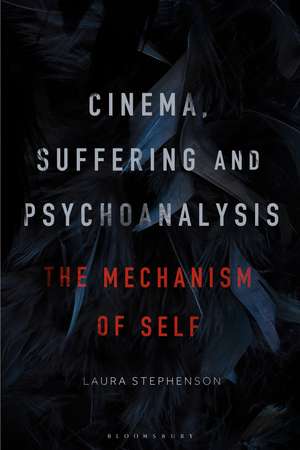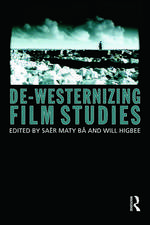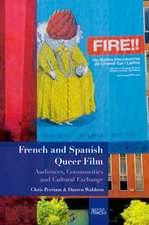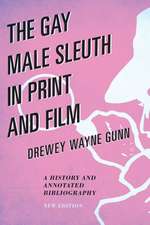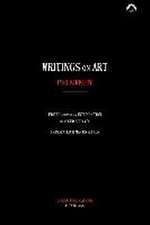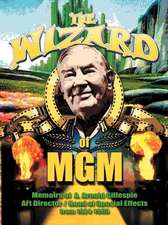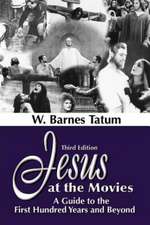Cinema, Suffering and Psychoanalysis: The Mechanism of Self
Autor Laura Stephensonen Limba Engleză Hardback – 24 ian 2024
Preț: 539.18 lei
Preț vechi: 773.30 lei
-30% Nou
Puncte Express: 809
Preț estimativ în valută:
103.18€ • 107.11$ • 86.04£
103.18€ • 107.11$ • 86.04£
Carte tipărită la comandă
Livrare economică 24 martie-07 aprilie
Preluare comenzi: 021 569.72.76
Specificații
ISBN-13: 9798765105665
Pagini: 232
Dimensiuni: 152 x 229 x 21 mm
Greutate: 0.48 kg
Editura: Bloomsbury Publishing
Colecția Bloomsbury Academic
Locul publicării:New York, United States
Pagini: 232
Dimensiuni: 152 x 229 x 21 mm
Greutate: 0.48 kg
Editura: Bloomsbury Publishing
Colecția Bloomsbury Academic
Locul publicării:New York, United States
Caracteristici
Pulls the strands of Lacan, Zizek and Kristeva together, utilising all three philosophers to approach the sizeable theoretical discussion of the human condition
Notă biografică
Laura Stephenson is Senior Lecturer in Film at the University of Westminster, UK. In her role on the BA (Honours) Film degree she brings together the oft-divided worlds of screen theory and practice. Her research interests are driven by the notion that suffering is an integral aspect of the lived-experience, with much of her philosophical work exploring identity, trauma and the human condition through cinema and television texts. She aims to continue researching and publishing in the growing academic field of medical humanities.
Cuprins
1. Introduction 2. Black Swan (2010) and Psychosis 3. The Machinist (2004) and Insomnia 4. The Girl with the Dragon Tattoo (2009) and PTSD 5. Brodre (2004) and Adjustment Disorder 6. Copycat (1995) and Agoraphobia 7. The Shipping News (2001) and Depression 8. Conclusion Index
Recenzii
Cinema, Suffering and Psychoanalysis is unique and vital addition to the canon of film analysis, bringing together psychoanalysis and psychology in order to explore, in exciting new ways, the manner with which cinema can represent our deepest struggles and darkest experiences. An authoritative, and highly readable, exploration of cinema and suffering.
This is a fascinating and expertly written account of the relationship between clinical psychology, psychoanalysis and cinema. Dr Stephenson's thoroughly engaging writing style, which is both accessible and informed by detailed and thorough research, and her use of appropriate films as case studies, results in a compelling argument for approaching cinema in a novel way.
Focusing on psychological suffering through the lens of film, Laura Stephenson innovatively combines the diagnostic capacity of psychiatry with the subjective insights of psychoanalysis to show that suffering is not abnormal. It affects, and unifies, us all. With equal parts acuity and compassion - for the film protagonists as well as for ourselves, their inevitable companions - Stephenson shows why we are fascinated with psychological disorder in film, and what it may tell us about our own condition. In a world of compounding mental health concerns, this is a book of and for our times.
This is a fascinating and expertly written account of the relationship between clinical psychology, psychoanalysis and cinema. Dr Stephenson's thoroughly engaging writing style, which is both accessible and informed by detailed and thorough research, and her use of appropriate films as case studies, results in a compelling argument for approaching cinema in a novel way.
Focusing on psychological suffering through the lens of film, Laura Stephenson innovatively combines the diagnostic capacity of psychiatry with the subjective insights of psychoanalysis to show that suffering is not abnormal. It affects, and unifies, us all. With equal parts acuity and compassion - for the film protagonists as well as for ourselves, their inevitable companions - Stephenson shows why we are fascinated with psychological disorder in film, and what it may tell us about our own condition. In a world of compounding mental health concerns, this is a book of and for our times.
